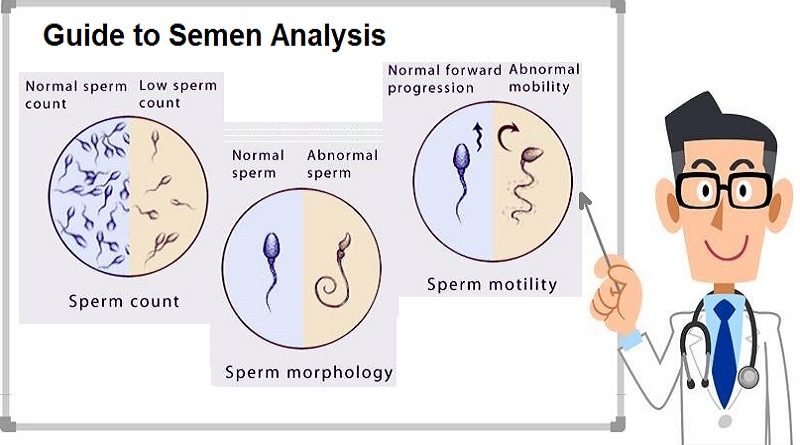A Guide to Semen Analysis: What to Expect, How to Prepare, and Understanding the Results
In today’s article, (Guide to Semen Analysis), we will explore everything about this test. In this guide, we will take you through a step-by-step process of preparation, what to expect during a semen analysis, the procedure, and understanding of the report.
As a man, it can be a little daunting to undergo a semen analysis. However, this test is essential in diagnosing male infertility. You have to undergo testing if you and your partner cannot make a baby. Anyway, it’s a simple and painless process. We will discuss the following key points:
- Why is Semen Analysis Important for Male Fertility?
- How to Prepare for a Semen Analysis
- The Procedure for Semen Analysis
- Understanding Semen Analysis Results
- When to See a Doctor for Infertility
Why is Semen Analysis Important for Male Fertility?
A semen analysis is an essential test that tells more information about a man’s fertility status. The test, which is a simple one, examines the quality and quantity of sperm in the semen. It provides important information including sperm count, motility, morphology, semen volume, and other important parameters. [1]
How to Prepare for a Semen Analysis
Preparing for a semen analysis is relatively simple, just follow this guide:
- Inform your doctor of any medication or supplements you are taking as they could affect the results. [2]
- Abstain from sexual activity or ejaculation for two to five days before the test to obtain a healthy sperm sample.
- To get accurate results, you have to avoid alcohol, caffeine, and tobacco before the test as they can affect sperm motility and morphology. [1]
Guide to The Procedure for Semen Analysis
The Procedure A semen analysis is typically done in a medical laboratory. The process involves collecting a semen sample through masturbation or through a special condom during sexual intercourse. The semen is then analyzed for volume, sperm count, motility, and morphology. The volume of semen is measured, and the sperm are counted under a microscope. The motility and morphology of the sperm are also evaluated. [3]
Understanding Semen Analysis Results
The results will include the semen volume, sperm count, motility, morphology, and other parameters like semen volume, pH of the semen, and the presence of pus cells or any other findings. [2] If the results are average normal, then there is likely no issue with male fertility. However, if the results show abnormalities, further testing may be required to determine the underlying cause. [3] It is essential to discuss the results with your doctor to understand the implications and what your options are moving forward.
A normal sperm count ranges from 15 to 200 million sperm per milliliter of semen [1]. But if the sperm count is lower than 15 million per milliliter, it does not necessarily mean that a man is infertile. A man can still be fertile even with a low sperm count if the quality of the sperm is high, with good shape, size, and swimming speed [2].
According to the World Health Organization (WHO), an ejaculate is considered normal if at least 1.5 mL, and it contains more than 15 million sperm per milliliter of semen. At least 32% should swim in a forward direction and at least 4% with normal shape [4].
When to Seek a medical advice
If the semen analysis results show low sperm count, abnormal shape, or morphology, it is time to seek medical advice for further evaluation and treatment. Additional testing may be required to determine the underlying cause of infertility. Common causes of male infertility include varicocele, hormonal imbalances, genetic abnormalities, and infections. Also, you can discuss with your doctor various fertility treatments or other options for making a baby. You can discuss intrauterine insemination (IUI) or in vitro fertilization (IVF), depending on the severity of your case.
SUMMARY
Semen analysis, as explained in this guide, is crucial in diagnosing male infertility. Whereas, you can know about your sperm count, motility, and morphology. By understanding what to expect during the procedure, preparing adequately, and understanding the results, you can take an active role in your fertility health. Remember, if you have any concerns, don’t hesitate to seek medical advice. Also, you may drop a comment for your concern below the article. we will be glad to help you.
SOURCES




